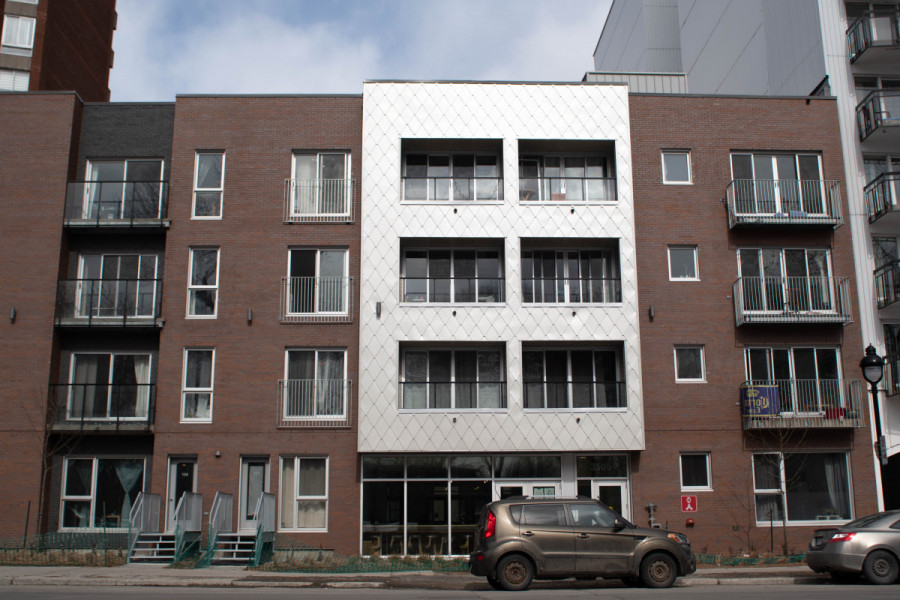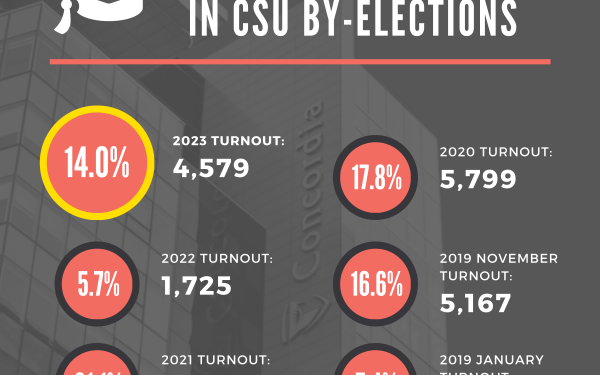Woodnote student housing co-op accepting new tenants
Leases starting in July, applications from Concordia students are prioritized
The Woodnote student housing project is accepting new applications during the month of March with potential tenants being able to move in by July 1.
Located on Ave. Papineau across the street from La Fontaine Park, the building has 90 units and can house 144 students. It also features secure indoor parking for bikes and, according to L'Unité de travail pour l'implantation de logement étudiant (UTILE) operations director Michèle Le Moëligou, will soon include a garden and storage space for sports equipment.
“The Woodnote project really is a stepping stone in the development of a unique student housing model in Canada,” said Moëligou. “We believe that if we build enough buildings based on that model, it would be a way to protect students from housing crises because since we’re nonprofit, we are off-market.”
Read more: Concordia Housing Co-op Opens Applications
UTILE is a non-profit organization that specializes in the development and promotion of cooperative student housing in Quebec. Their involvement with the Woodnote began in 2014 when their report on the project’s feasibility was approved by the Concordia Student Union.
“A lot of [students] come to study at Concordia and then they get taken advantage of by bad landlords,” said CSU general coordinator Isaiah Joyner. “They face different housing issues, rent increases, and they don’t know their rights. They just deal with all these things.”
At the Woodnote, student residents also become members of the co-op. “This way it gives a voice to tenants,” said Moëligou. “Because we are working in collaboration with the co-op, we are able to communicate with them directly and get their input.”
Apartment prices at the Woodnote begin at $737 for a studio apartment, $1 158 for a two-bedroom, $1 326 for a three-bedroom, and $1,816 for a four-bedroom. While these prices are not far below the current average rent for the neighbourhood, UTILE believes Woodnote will offer better value in the future. As a non-profit co-op, rent shouldn’t rise as rapidly as it would with a for-profit private landlord.
The co-op gives priority to Concordia students, but further prioritizes low income students and tenants who have faced discrimination when looking for accommodations in the past. While the Woodnote does house some tenants from outside of Concordia, 88 per cent come from the university.
“A lot of [students] come to study at Concordia and then they get taken advantage of by bad landlords. They face different housing issues, rent increases, and they don’t know their rights. They just deal with all these things.” — Isaiah Joyner
“While Montreal's student population has steadily risen over the years, almost no student housing has been built—all while the financialization of housing and other pressures of gentrification were already increasing rents on the private housing market,” said UTILE general director Laurent Levesque. “We're trying to help on these two fronts by building as much nonprofit student housing as possible in the coming few years.”
Rather than a single landlord, administration is carried out by a board of directors. The board is made up of six tenants, one housing expert from Concordia’s Housing and Job Resource Centre, one UTILE member, and one member representing the community of Montreal.
Another partner of the co-op, la Société d'habitation populaire de l'Est de Montréal (SHAPEM), is responsible for collecting rent and making repairs, acting as a facility manager.
The CSU’s role in the co-op, according to Joyner, is to supply the tenants. In return, the union gets control over a variety of different things in the building including the structure of leases, priority booking, and deciding what projects will be undertaken by the co-op.
Initially valued at $14 million, the project required an extra $200,000 to get a construction permit from Plateau Mont-Royal. It was delayed again due to the rise of construction costs in Montreal as well as the Trump administration’s 25 per cent tariffs on steel.
Read more: CSU Housing Project Delayed Again
There are no plans to expand the building in the immediate future. “[The market] is very tight,” said Joyner. “If you’re looking for a house or looking to buy property in Montreal, it’s not the easiest because there’s a lot of competition, there’s a lot of regulations.”
“This is not a solely CSU project. We need a partner who has the expertise to navigate this and help support the union. They helped us from a technical standpoint because they have expertise there,” he added.
While the CSU is the first student union to commit to a project with UTILE, the organization hopes to build partnerships with other student unions in Montreal and will continue to promote their non-profit model throughout the province.





__600_375_90_s_c1.jpg)

